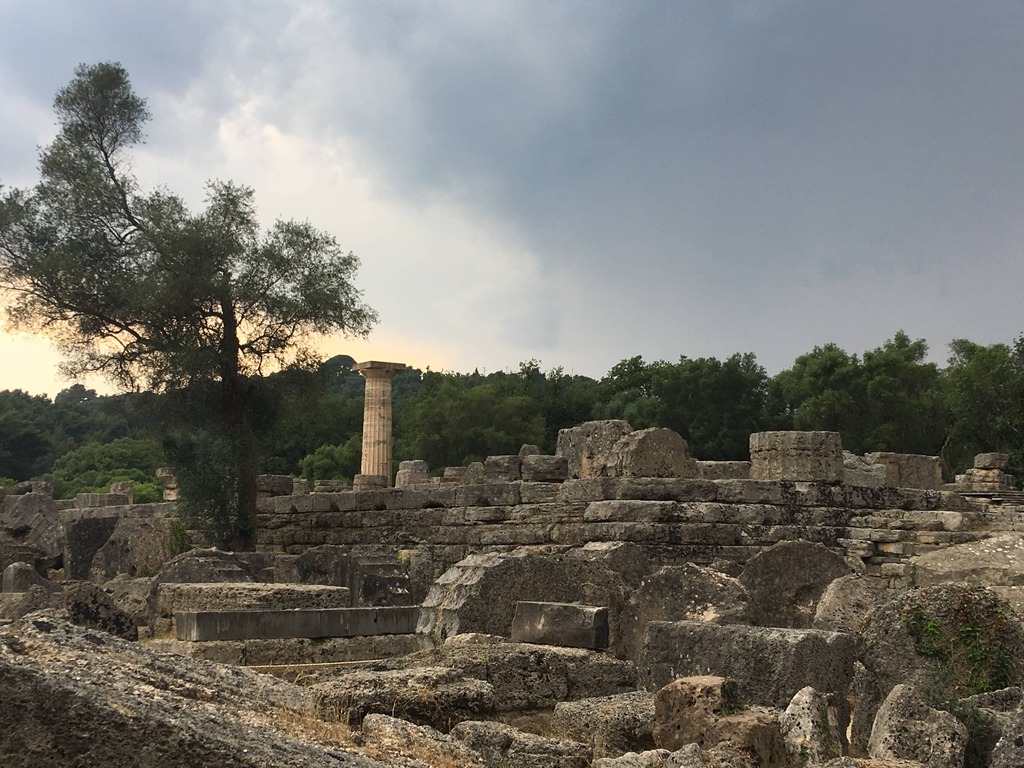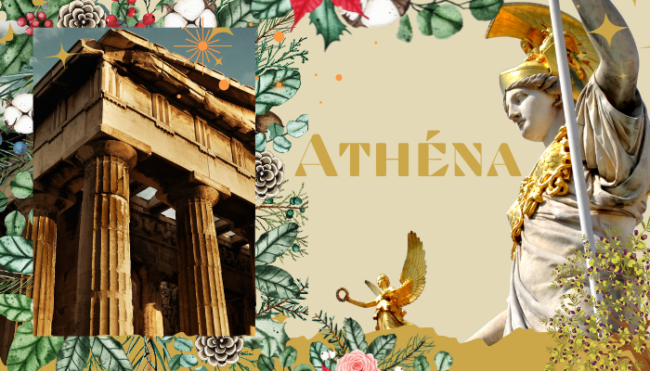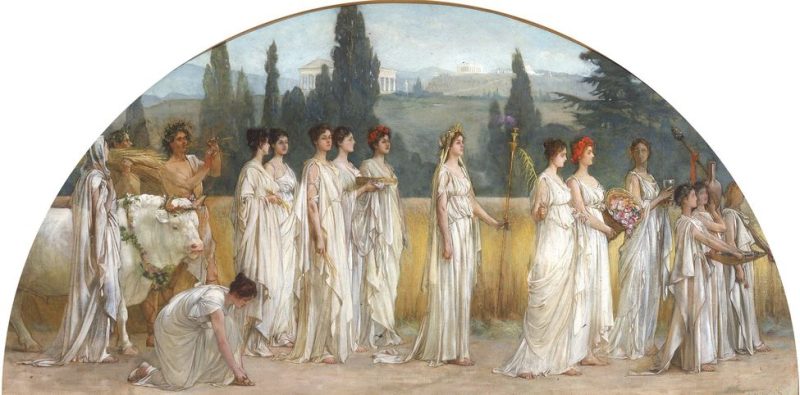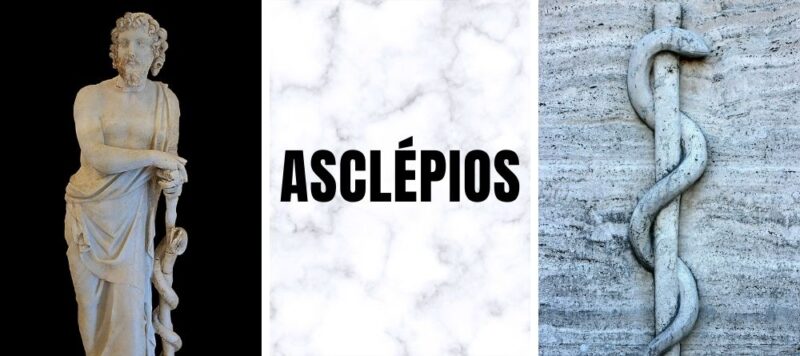Zeus or Jupiter, the god of the Olympian gods in Greek mythology, was the son of the Titans, Cronus and Rhea.
If you want to start the story from the beginning, we suggest you first read our article“How did Greek mythology come about?“
Often depicted brandishing a bolt of lightning in his right hand, he was considered the God of heaven and lightning.
Mania F. recounts a few episodes from her tumultuous life.
The victory of Zeus and the other Olympian deities
Titanomachy, the battle between the titans on one side and the Olympian gods on the other, hides an interesting meaning that confirms Jean Cocteau’s words:
“Personally, I prefer mythology to history. Mythology tells of unreal events, as in a fairy tale, but at the heart of it lies, in most cases, the memory of a historical event that actually took place, or a cause that provoked these events. History, on the other hand, describes real events, but we often discover that these events are far from the truth! “
On the subject of Titanomachy, one might think that, as humans became more cultured, more “civilized”, they found it hard to accept deities such as titans who swallowed their own children. So they sought to replace them with other deities, the gods of Olympus, who resembled them, having more or less the same qualities and faults as they did.
After their victory, Zeus and his brothers divided the earth between them by drawing lots. Zeus has won the sky, Poseidon has taken the kingdom of the sea and Hades the kingdom of the dead.
Zeus: The Olympian god of gods in Greek mythology
Almighty king of all gods and men, Zeus’ golden throne was above the clouds, on Olympus, and from there he dominated heaven and earth.
He was the absolute master of storms and lightning, and his weapon was thunder. He was the master of destiny and dispensed justice on earth as well as in heaven.
No one had the right to challenge his decisions. Homer and Aeschylus portray him admirably.
Zeus grew up in a cave in Crete, where his mother Rhea had hidden him. The Nymphs looked after him, feeding him honey and drinking the milk of the Amalthea goat.
When he cried, the Curetes, the guardians of the cave, danced a war dance and struck their shields with their swords to cover the baby’s cries so that Cronos wouldn’t hear them.
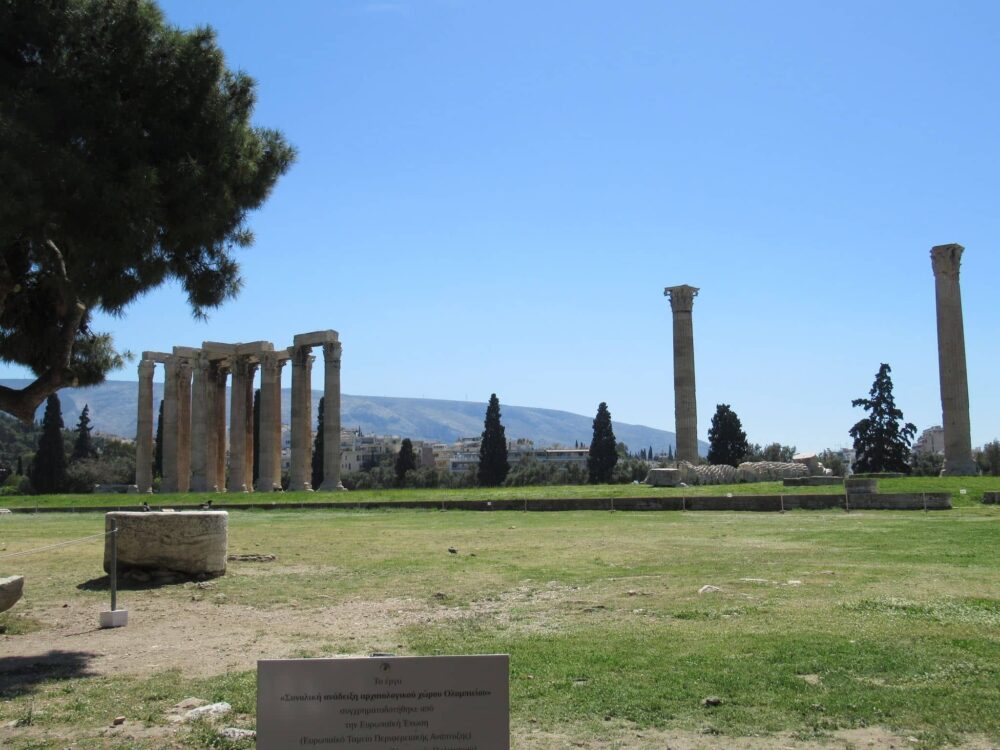
The god Zeus and the goddesses of Greek mythology
Hera, sister of Zeus, was also his official wife, ruling at his side. But Zeus was by no means a faithful husband, and often provokedHera‘s jealousy and fury.
Ancient authors attributed a series of amorous adventures to her. He was a victim of his passions, and no obstacle could stop him. He had romantic relationships with goddesses, mortal women and foreigners.
With Metis, who was the personification of wisdom, Zeus had Athena, who was born from her father’s head.
Themis, another of Zeus’ wives who represented justice, gave birth to the Seasons and the Moires, the spinners of destiny.
With the nymph Maia, Zeus had Hermes.
Leto gave birth to her twins, Apollo and Artemis, under a palm tree on the sacred island of Delos. Finally, with the goddess Demeter, he had Persephone.
Zeus: the Olympian god in love with mortal women
But Zeus fell many times in love with mortal women like Niovi, the nymph Callisto, Aegina, Io, Europa…
He kidnapped her while transformed into a white bull. They married in Crete, where Europe had three children, including Minos, the famous king of Crete.
What a wonderful etymology for the name of the continent of Europe and its currency, the Euro!
Thanks to some curious stratagems, Zeus managed to unite with other women who gave birth to many of the demigods and heroes of Greek mythology:
- Zeus, in the form of golden rain, conquered Danae, who gave birth to Perseus.
- Semeli, daughter of the Theban king Kadmos, was expecting a child from Zeus. When, punished by Zeus, she was burnt to death, the god took the foetus and sewed it into her thigh. Nine months later, Dionysus, the god of wine and theater, was born.
- Zeus also visited Leda, transformed into a white swan. Many artists have been inspired by this legend. Leda gave birth to three children: Castor, Pollux and Hélène.
- Alkmini was the last mortal with whom Zeus fell in love. From their union was born Heracles (Hercules).
Despite all these adventures, the ancient Greeks greatly respected Zeus, whom they called the father of gods and men.
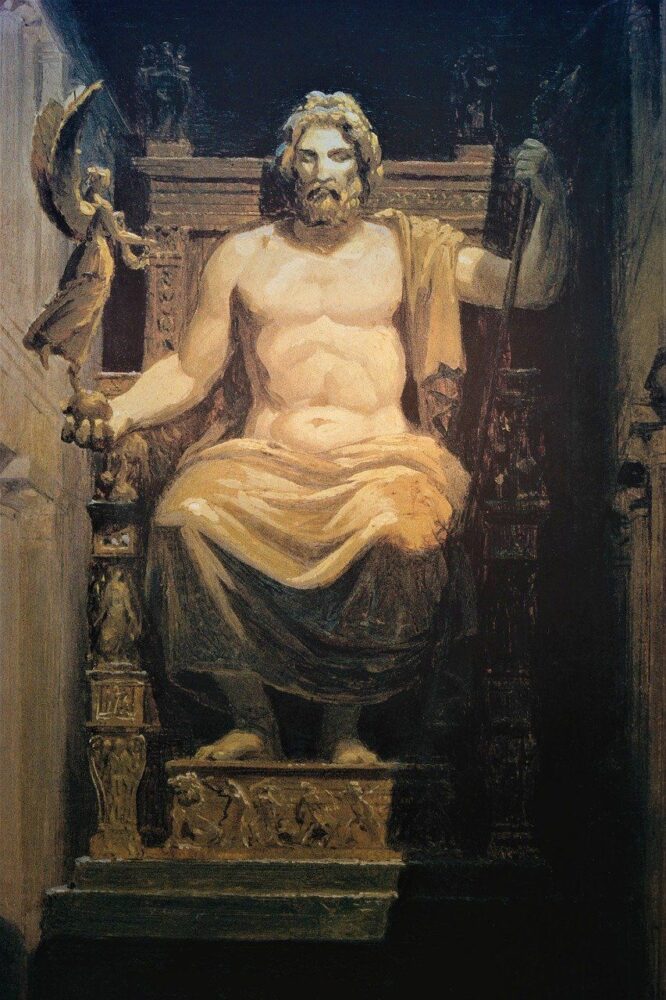
Sites related to Zeus and Greek mythology
Now that you know everything (or almost everything) about Zeus, here’s a list of museums and sites we suggest for you to immerse yourself even more in Greek mythology:
- The Athens Archaeological Museum features statues and representations of various gods, goddesses and heroes: Zeus, Poseidon, Apollo, Aphrodite, Athena …
- The Temple of Zeus in Athens
- The palace of Knossos
- The Temple of Zeus on the mythical site of Olympia
- The Psychro cave in Crete, where Zeus is said to have been born
- Apollo’s temple at Delphi
- Poseidon’s temple at Cape Sounion
*****
And to find out even more about the gods and goddesses of Greek mythology: Who are the Greek gods and goddesses?
